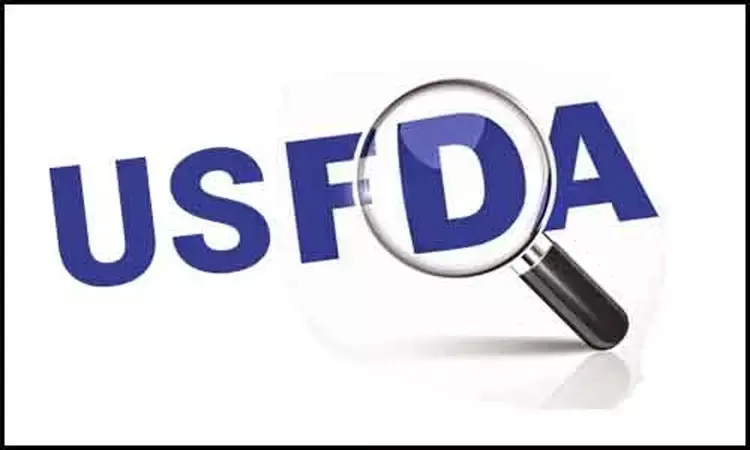- Home
- Medical news & Guidelines
- Anesthesiology
- Cardiology and CTVS
- Critical Care
- Dentistry
- Dermatology
- Diabetes and Endocrinology
- ENT
- Gastroenterology
- Medicine
- Nephrology
- Neurology
- Obstretics-Gynaecology
- Oncology
- Ophthalmology
- Orthopaedics
- Pediatrics-Neonatology
- Psychiatry
- Pulmonology
- Radiology
- Surgery
- Urology
- Laboratory Medicine
- Diet
- Nursing
- Paramedical
- Physiotherapy
- Health news
- Fact Check
- Bone Health Fact Check
- Brain Health Fact Check
- Cancer Related Fact Check
- Child Care Fact Check
- Dental and oral health fact check
- Diabetes and metabolic health fact check
- Diet and Nutrition Fact Check
- Eye and ENT Care Fact Check
- Fitness fact check
- Gut health fact check
- Heart health fact check
- Kidney health fact check
- Medical education fact check
- Men's health fact check
- Respiratory fact check
- Skin and hair care fact check
- Vaccine and Immunization fact check
- Women's health fact check
- AYUSH
- State News
- Andaman and Nicobar Islands
- Andhra Pradesh
- Arunachal Pradesh
- Assam
- Bihar
- Chandigarh
- Chattisgarh
- Dadra and Nagar Haveli
- Daman and Diu
- Delhi
- Goa
- Gujarat
- Haryana
- Himachal Pradesh
- Jammu & Kashmir
- Jharkhand
- Karnataka
- Kerala
- Ladakh
- Lakshadweep
- Madhya Pradesh
- Maharashtra
- Manipur
- Meghalaya
- Mizoram
- Nagaland
- Odisha
- Puducherry
- Punjab
- Rajasthan
- Sikkim
- Tamil Nadu
- Telangana
- Tripura
- Uttar Pradesh
- Uttrakhand
- West Bengal
- Medical Education
- Industry
Merck seeks USFDA nod for Keytruda to treat non-small cell lung cancer

KEYTRUDA is an anti-programmed death receptor-1 (PD-1) therapy that works by increasing the ability of the body's immune system to help detect and fight tumor cells.
Rahway: Merck, known as MSD outside the United States and Canada, has announced that the U.S. Food and Drug Administration (USFDA) has accepted for review a new supplemental Biologics License Application (sBLA) seeking approval for KEYTRUDA for the adjuvant treatment of patients with stage IB (≥4 centimeters), II or IIIA non-small cell lung cancer (NSCLC) following complete surgical resection. The sBLA is based on data from the pivotal Phase 3 KEYNOTE-091 trial, also known as EORTC-1416-LCG/ETOP-8-15 – PEARLS, conducted in collaboration with the European Organisation for Research and Treatment of Cancer (EORTC) and the European Thoracic Oncology Platform (ETOP). The FDA has set a Prescription Drug User Fee Act (PDUFA), or target action, date of January 29, 2023, however, further data may be provided during the review process that may delay this date.
The study has dual primary endpoints of disease-free survival (DFS) regardless of PD-L1 expression and DFS in patients whose tumors express PD-L1 (tumor proportion score [TPS] ≥50%). At the interim analysis of this study, adjuvant treatment with KEYTRUDA demonstrated a significant improvement in DFS for patients regardless of PD-L1 expression compared to placebo. Disease-free survival in patients whose tumors express PD-L1 (TPS ≥50%) did not reach statistical significance per the pre-specified statistical plan. The trial will continue to analyze DFS in patients whose tumors express high levels of PD-L1 (TPS ≥50%) as well as other secondary endpoints. The safety profile of KEYTRUDA in this study was consistent with that observed in previously reported studies. Results were recently presented at a European Society for Medical Oncology (ESMO) Virtual Plenary.
"KEYTRUDA is foundational in the treatment of metastatic non-small cell lung cancer. The acceptance of our application demonstrates the progress we are making in earlier lines and earlier stages of certain cancers across our oncology portfolio," said Dr. Eliav Barr, senior vice president, head of global clinical development and chief medical officer, Merck Research Laboratories. "If approved, KEYTRUDA would be the first adjuvant immunotherapy-based option in the U.S. for patients with stage IB (≥4 centimeters) to IIIA non-small cell lung cancer following surgical resection regardless of PD-L1 expression."
In addition to KEYNOTE-091, six other pivotal trials evaluating a KEYTRUDA-based regimen in patients with earlier stages of cancer met their primary endpoint(s). These trials included: KEYNOTE-716 in stage IIB and IIC melanoma; KEYNOTE-054 in stage III melanoma; KEYNOTE-564 in renal cell carcinoma; KEYNOTE-522 in triple-negative breast cancer; KEYNOTE-629 in cutaneous squamous cell carcinoma; and KEYNOTE-057 in Bacillus Calmette-Guerin-unresponsive, high-risk, non-muscle invasive bladder cancer.
Read also: Merck KEYTRUDA gets European nod to treat Deficient Mismatch Repair tumors
Ruchika Sharma joined Medical Dialogue as an Correspondent for the Business Section in 2019. She covers all the updates in the Pharmaceutical field, Policy, Insurance, Business Healthcare, Medical News, Health News, Pharma News, Healthcare and Investment. She has completed her B.Com from Delhi University and then pursued postgraduation in M.Com. She can be contacted at editorial@medicaldialogues.in Contact no. 011-43720751


